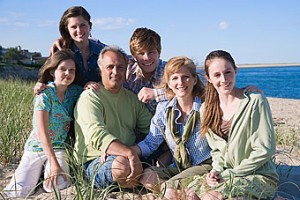It is more than likely that the reason for establishing your estate plan is to ensure that your family is financially secure after you are gone. Estate planning for families with minor children can present challenges and difficult choices to parents. The challenges originate from the minor’s legal restrictions on ownership of property and by the parent’s desire to gift assets to a minor but to defer the minor’s actual possession until the minor reaches some level of maturity or at least the age of majority.  Additionally, planning for minors also involves planning for the custody of the minor in the event both parents die before the minor reaches the legal age of majority. Once appointed, the guardian has a significant impact on the child’s value system, religious beliefs, education and, in general, the child’s development to adulthood.
Additionally, planning for minors also involves planning for the custody of the minor in the event both parents die before the minor reaches the legal age of majority. Once appointed, the guardian has a significant impact on the child’s value system, religious beliefs, education and, in general, the child’s development to adulthood.
Once a guardian is chosen, the most effective way to make sure that each of your children receives the necessary financial support to ensure that they are well taken care of is to establish your Revocable Trust and draft a provision that would create Separate Share Trusts upon your death. A “Separate Share Trust” is called that because a separate trust is created for each of your children. This can make it easier for the parents to account for the differences in the needs and propensities of each child. If one child has special medical or education needs, or if there is a wide gap in the children’s ages, parents can establish the appropriate portion of the estate, and can establish the terms of the distribution accordingly. Thus, by using Separate Share Trust, you can ensure that each child is cared for according to their specific needs.
In Separate Share Trust the parent/grantor can decide under what circumstances and at what age each child has the maturity sufficient to take possession of the assets. This will ensure that children will not recklessly waste the funds when they turn 18. However, one disadvantage to using “separate share” trusts with multiple children is the difficulty in administration. Depending on the provisions of the trust agreement, the trustee (which does not have to be the legal guardian) may have to account to each beneficiary separately and may have to maintain records of the distributable net income attributable to each beneficiary for income tax purposes.
A grantor need not have a large estate to create a trust. The assets you will leave your children can add up faster than you think. If you add the value of your home, savings and investment accounts, you may find that you are well over $75,000. In these cases a trust is usually the best solution. In addition, the trust could be funded by life insurance policies which can push the value of their estate much higher. Once established, the trust would provide for the children’s care and education and make money available to them as they reach certain ages indicative of maturity 18, 21, 25, 30, 35 or any other age you specify. You’ve worked hard to provide for your family a bright future. Plan accordingly and make sure that your work creates the best opportunities imaginable for your children.

